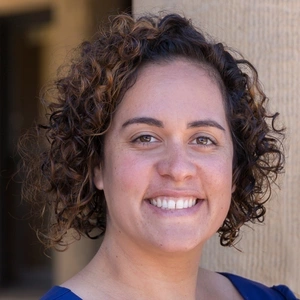Faculty Expert
As a graduate student at Stanford University, Sade Bonilla wanted to find ways to help marginalized students succeed. In a grassroots effort that originated with teachers and community members, several Bay Area high schools decided to assign some students identified as “at-risk” to take ethnic studies. She studied the outcomes and found that taking the class significantly increased the group’s graduation rate.
In fact, the impact of being encouraged to take the ethnic studies class on graduation rates was 60 percent larger than a previously studied intervention: doubling the time spent on algebra, a common stumbling block. Equally important: the effect of the ethnic studies class – taken in ninth grade – did not fade like many other interventions. Students who took the class as freshmen were more engaged in learning throughout their years in high school.
The Stanford group published their findings in PNAS, a peer-reviewed journal of the National Academies of Sciences. It got press coverage and impressed the governor of California, so much so that he and the Legislature signed into law a new requirement for all high school students in the State of California to take ethnic studies. “They cited our study as part of the rationale,” says Bonilla, who is now an assistant professor at Penn GSE.
“It’s always exciting for academics to have some relevance, but there are caveats to our findings.” She explains that the ethnic studies program was spearheaded by a small group of enthusiastic teachers, who received extensive support from the school district, and targeted a particular population: kids at risk of dropping out. The idea received lots of support from the school district itself, and they were very interested in helping the program succeed.
Bonilla sees several potential challenges as the program scales up, like a lack of training and planning time for teachers to create a curriculum relevant to their school districts. “We think that ethnic studies was so impactful for these students because it was tailored to the students that they were serving,” she mused. “I also worry that there's going to be this expectation from policymakers that there will be similar increases in student achievement or student outcomes” across the state. The study looked at students at risk of failing to graduate “which is likely why we see an increase in graduation rates.”
At GSE, she is forging new research–practitioner partnerships to provide insights for schools and policymakers so they can design more effective programs and policies. She is a collaborator on a multisite study of the relationship between ethnic studies and academic, behavioral, and social-emotional outcomes. In another project, she is examining the effect of financial aid on community college completion.
After getting her Ph.D. in the economics of education at Stanford University, Bonilla was an assistant professor at the University of Massachusetts Amherst College of Education. She says that what sold her on GSE and the Policy, Organizations, Leadership, and Systems Division was the city itself. Penn is located in an urban environment with many educational partners. She is also excited about her colleagues and “highly motivated, promising students.”
Media Inquiries
Penn GSE Communications is here to help reporters connect with the education experts they need.









